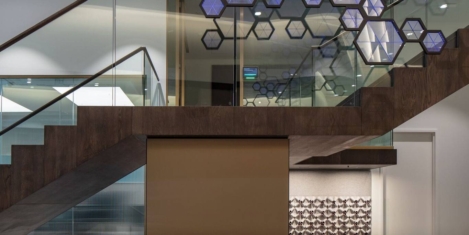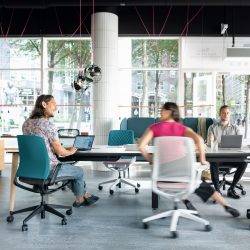To provide the best experiences, we use technologies like cookies to store and/or access device information. Consenting to these technologies will allow us to process data such as browsing behaviour or unique IDs on this site. Not consenting or withdrawing consent, may adversely affect certain features and functions.
The technical storage or access is strictly necessary for the legitimate purpose of enabling the use of a specific service explicitly requested by the subscriber or user, or for the sole purpose of carrying out the transmission of a communication over an electronic communications network.
The technical storage or access is necessary for the legitimate purpose of storing preferences that are not requested by the subscriber or user.
The technical storage or access that is used exclusively for statistical purposes.
The technical storage or access that is used exclusively for anonymous statistical purposes. Without a subpoena, voluntary compliance on the part of your Internet Service Provider, or additional records from a third party, information stored or retrieved for this purpose alone cannot usually be used to identify you.
The technical storage or access is required to create user profiles to send advertising, or to track the user on a website or across several websites for similar marketing purposes.
 The latest Bellwether research paper titled, ‘Stress in the Legal Profession: Problematic or Inevitable’, published by LexisNexis UK claims that stress is an endemic issue in the legal profession with two thirds of respondents currently experiencing high levels of stress despite the confident ‘business as usual’ industry outlook. Almost 1 in 4 solicitors feel that more could be done to support them in the workplace although 4 in 5 report high levels of job satisfaction and 5 out of 10 consider they have a positive state of mind.
The latest Bellwether research paper titled, ‘Stress in the Legal Profession: Problematic or Inevitable’, published by LexisNexis UK claims that stress is an endemic issue in the legal profession with two thirds of respondents currently experiencing high levels of stress despite the confident ‘business as usual’ industry outlook. Almost 1 in 4 solicitors feel that more could be done to support them in the workplace although 4 in 5 report high levels of job satisfaction and 5 out of 10 consider they have a positive state of mind.












 UK-based
UK-based 







 Insecure managers who worry that their performance could be undermined by competent subordinates can end up ostracising talented employees they feel are a threat to their own position. According to an paper published in
Insecure managers who worry that their performance could be undermined by competent subordinates can end up ostracising talented employees they feel are a threat to their own position. According to an paper published in 
 New guidance has been launched by the UK Green Building Council (UKGBC) to assist client organisations to include more ambitious circular design and construction best practices in project briefs for non-domestic projects. It addresses the commercial realities associated with making this practically happen and provides support and evidence to assist clients in setting clear strategies that ensure budget, project timescales and risks are all minimised and mitigated. The guidance may also be helpful for those in the supply chain looking to support construction clients on their journey towards specifying and practically applying circular economy principles.
New guidance has been launched by the UK Green Building Council (UKGBC) to assist client organisations to include more ambitious circular design and construction best practices in project briefs for non-domestic projects. It addresses the commercial realities associated with making this practically happen and provides support and evidence to assist clients in setting clear strategies that ensure budget, project timescales and risks are all minimised and mitigated. The guidance may also be helpful for those in the supply chain looking to support construction clients on their journey towards specifying and practically applying circular economy principles.







April 11, 2019
What lift design tells us about who we are and how we work
by Mark Eltringham • Comment, Facilities management, Workplace design
(more…)